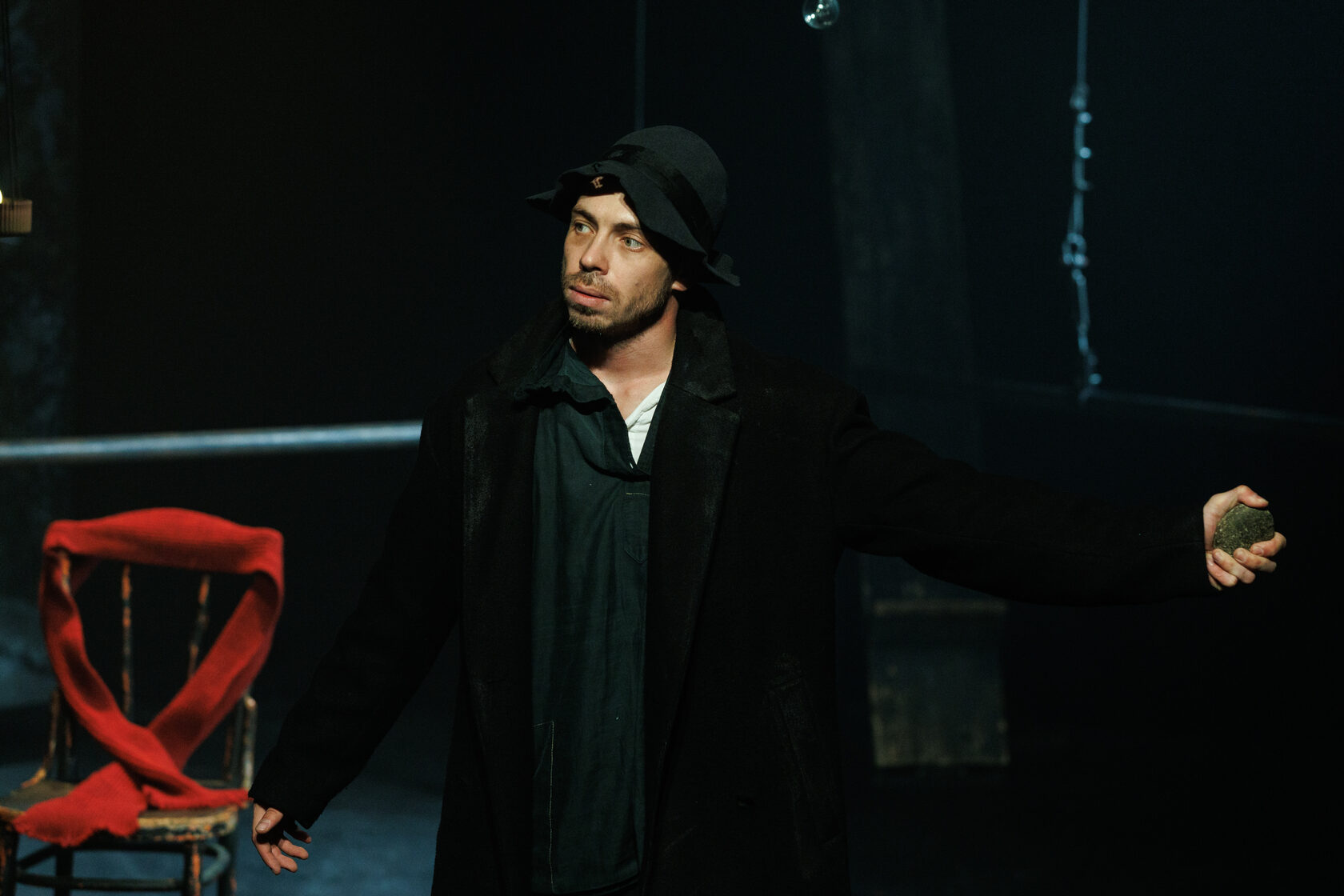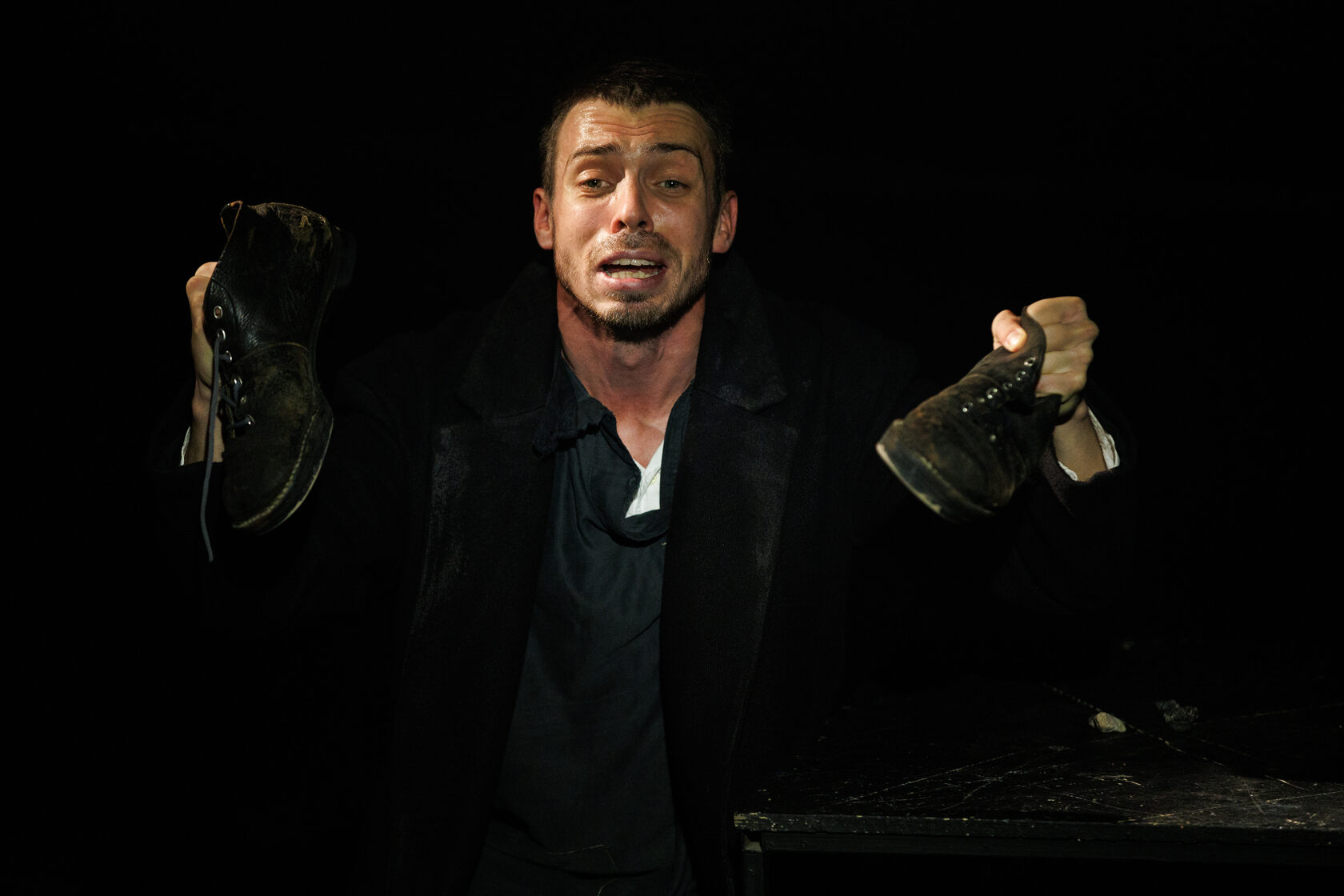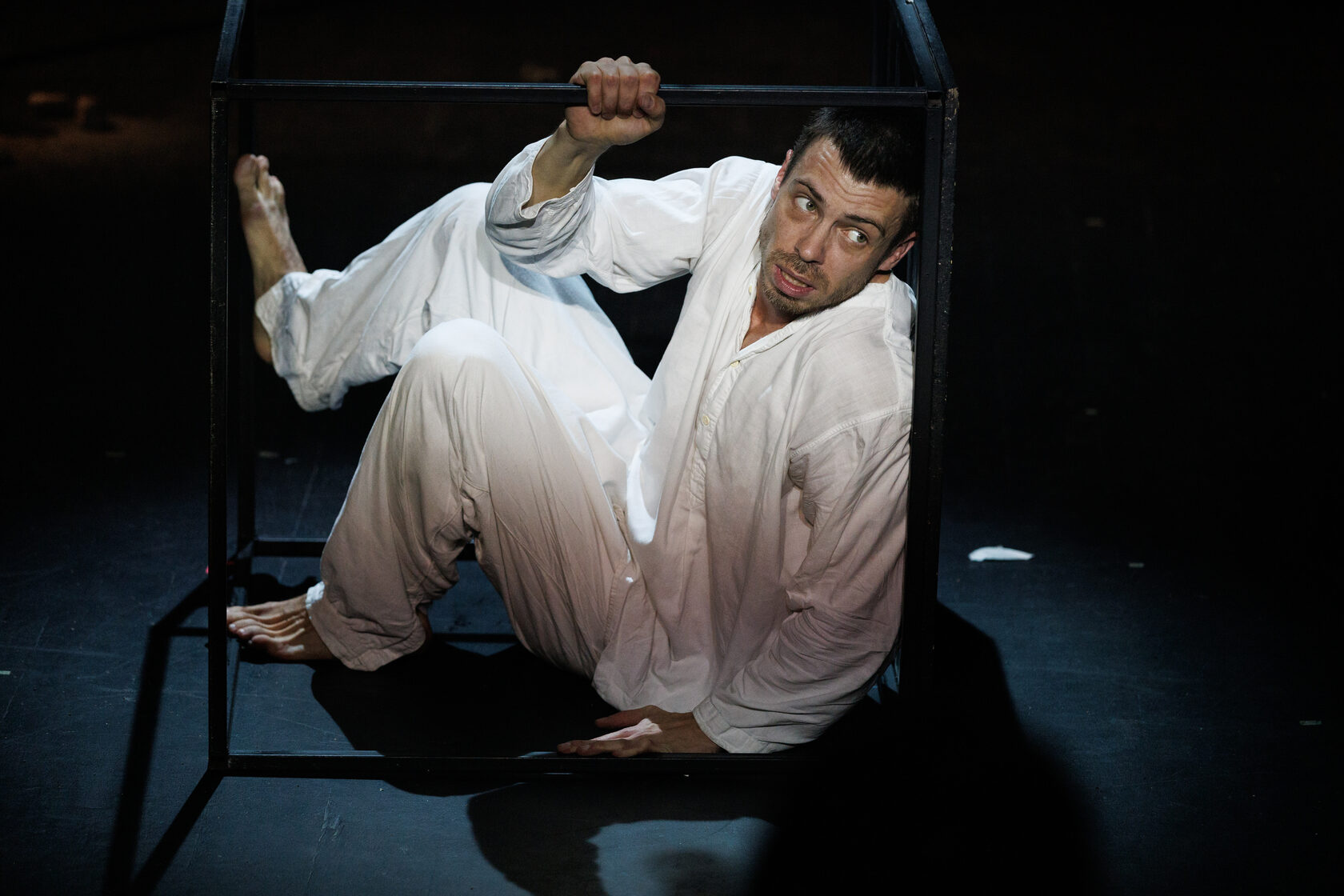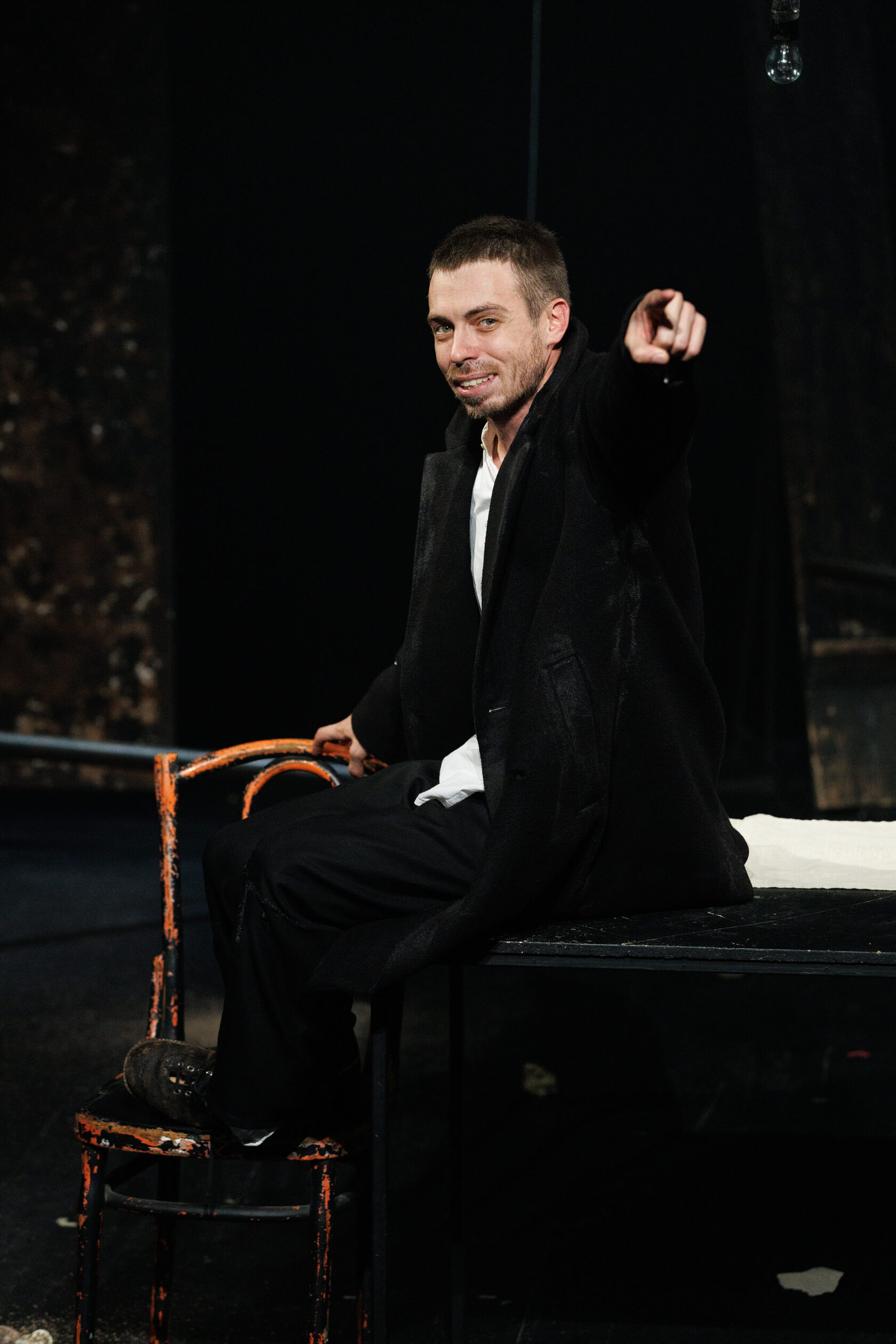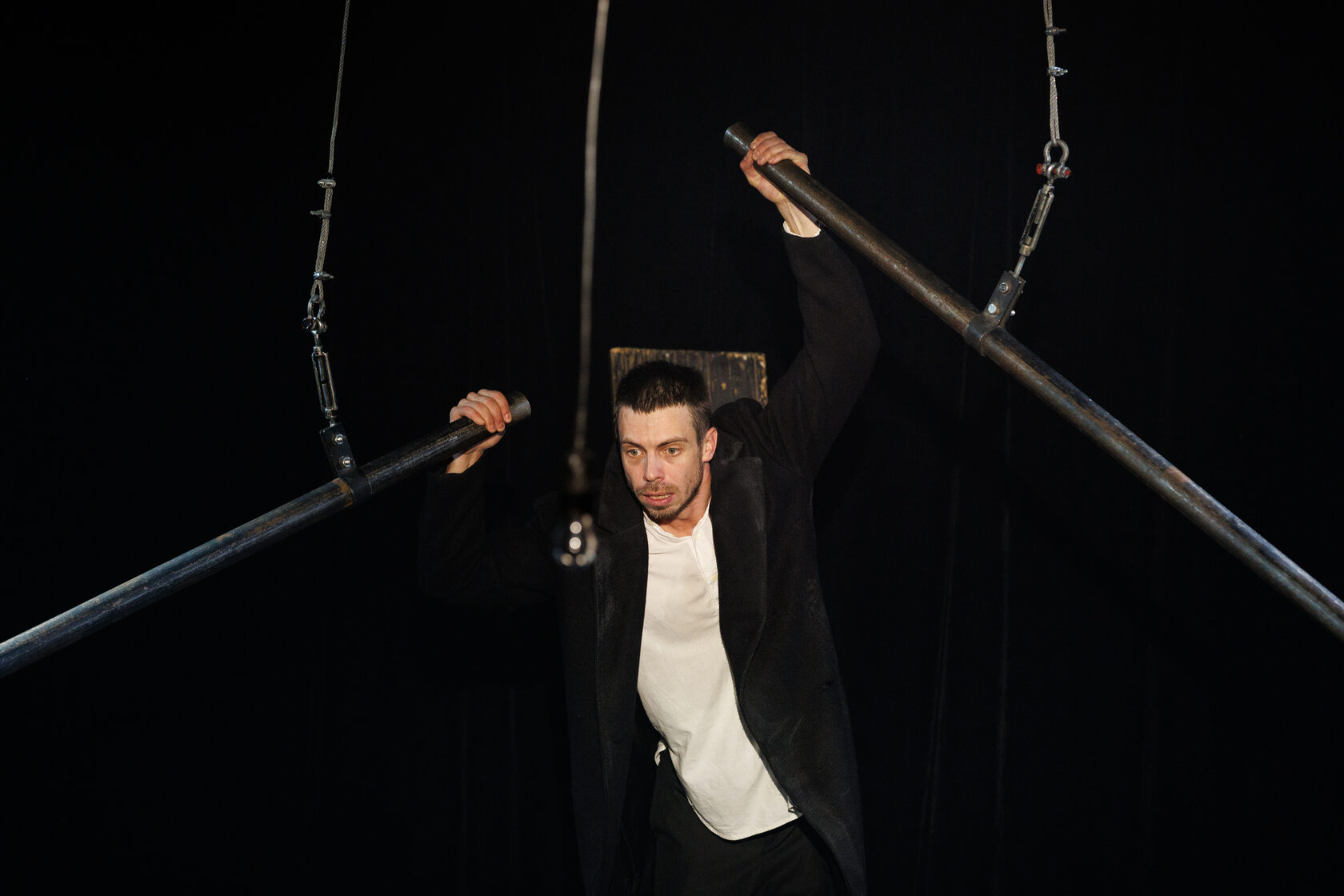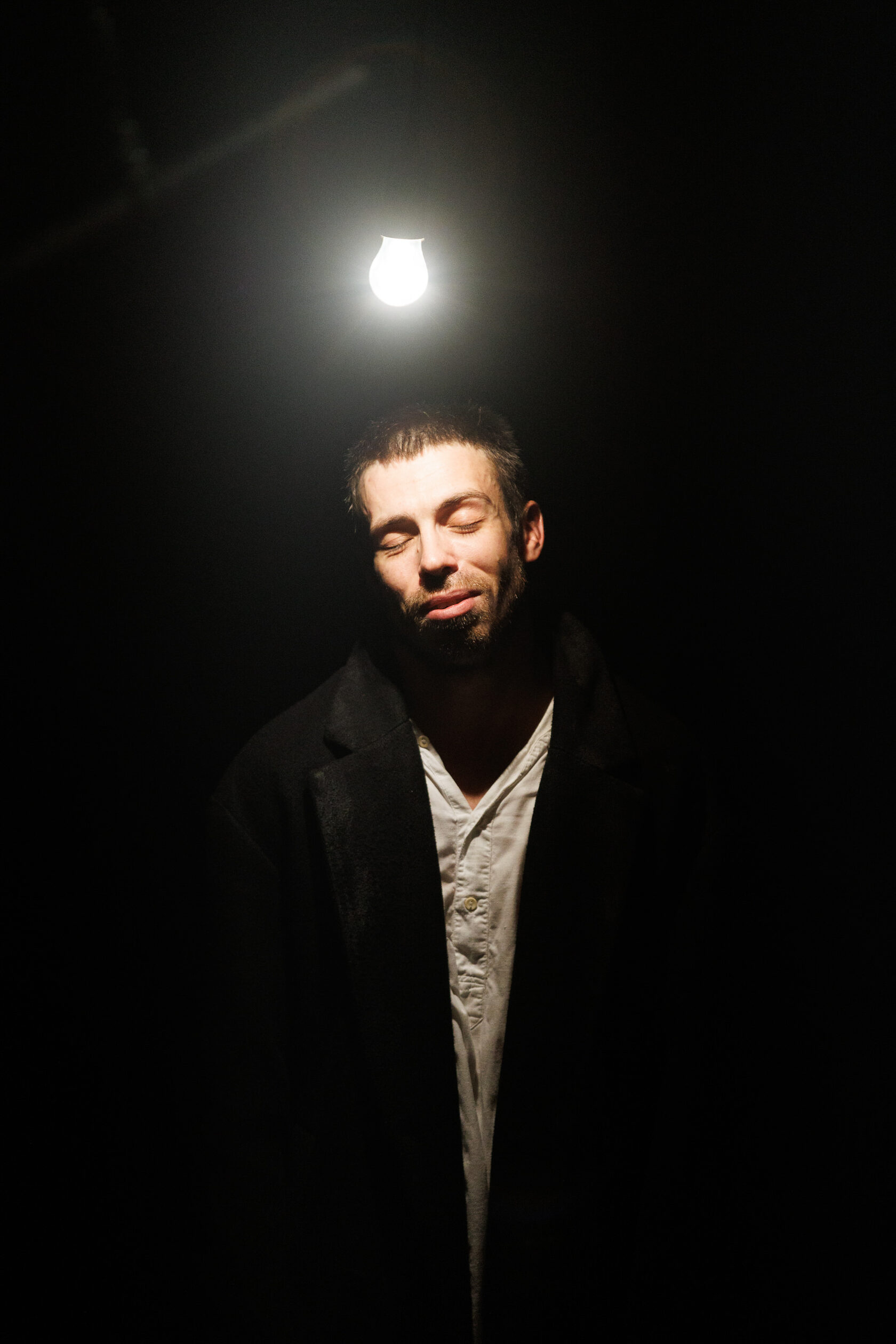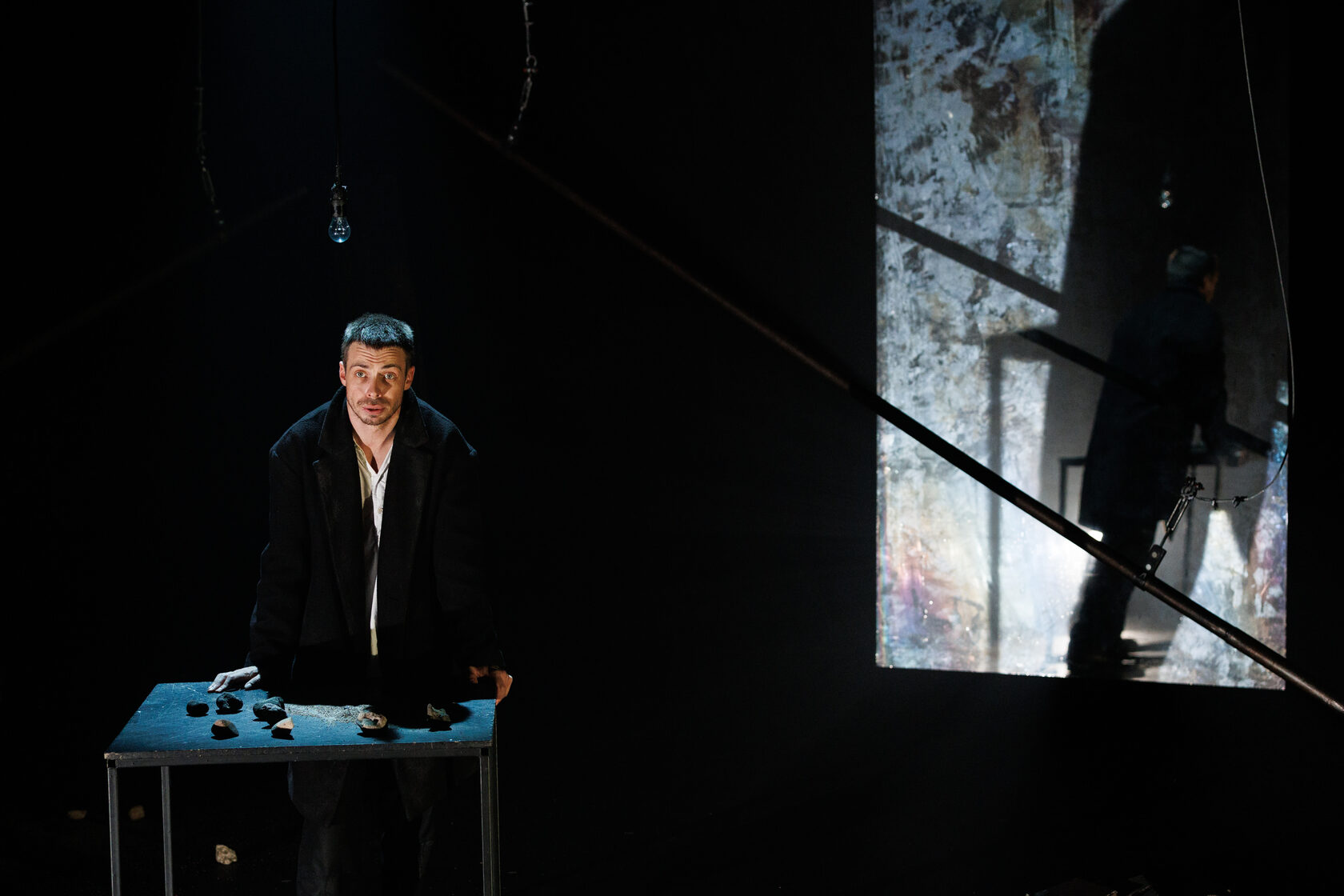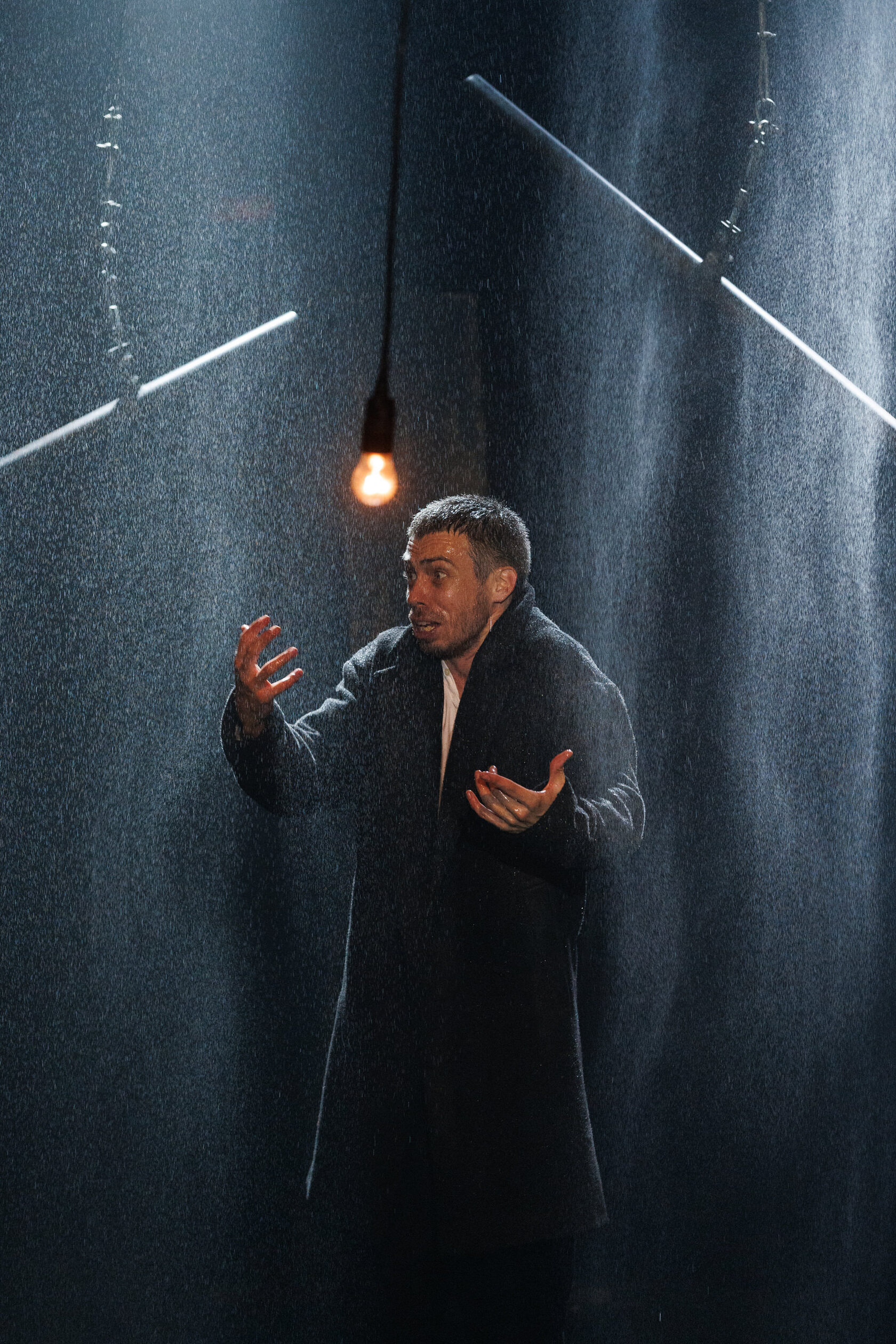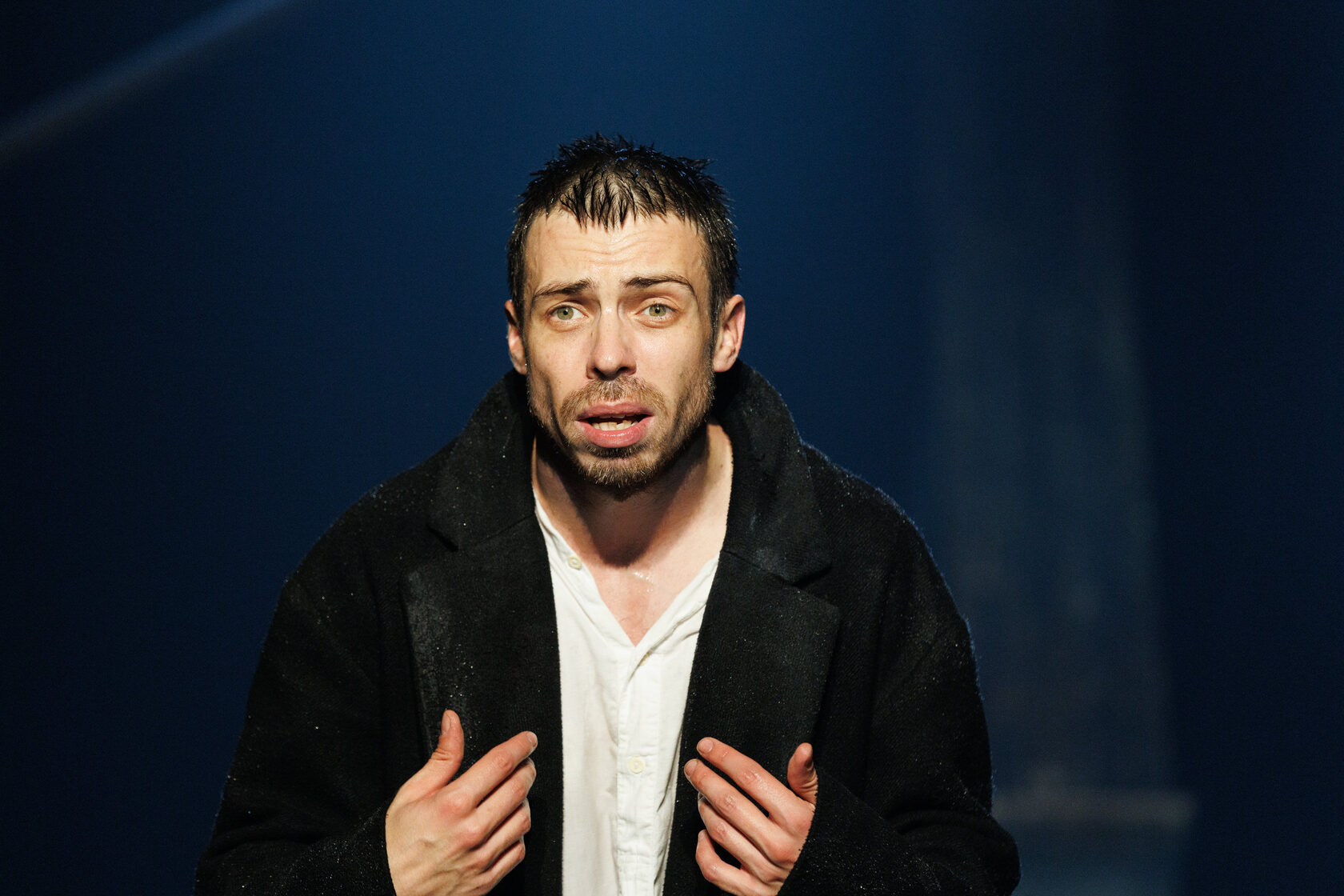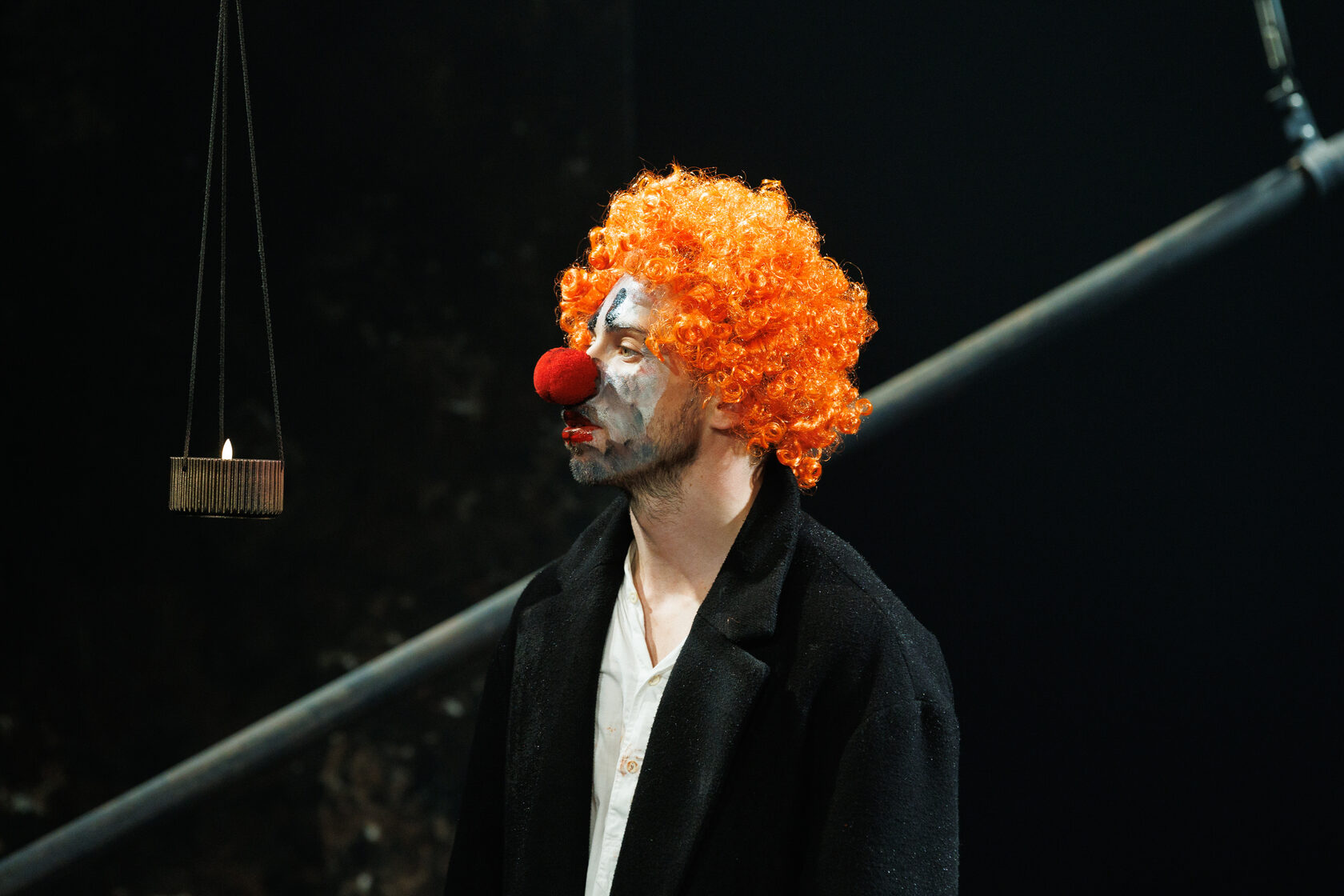Fyodor Dostoevsky. A Monodrama
Raskolnikov's monologue is a story of revelation, a story of confession. Before our eyes, the protagonist journeys from the birth of a mad idea to repentance for its very inception.
Premiere of the new stage version – September 27, 2024
Original premiere – February 9, 2017
Duration – 1 hour 40 minutes without intermission
For audiences aged 16 and over
About the play
Dostoevsky is the only Russian classic who never wrote plays. Nevertheless, he is one of the most frequently staged authors of the 20th and now the 21st century. His novellas and novels beg to be brought to the stage due to their dynamic and expressive nature. The "Workshop" repertoire includes "The Idiot. Return," "The Brothers Karamazov," "Ivan and the Devil," "The Demons," and "Crime and Punishment."
Director Andrey Gavryushkin tackles the complex polyphonic novel "Crime and Punishment," known to all of us from school days, in the format of a monodrama. By focusing on several days in the life of Rodion Raskolnikov, the director invites us to view the rapidly unfolding plot through the eyes of the main character. The story of a murder transforms into the story of a soul's demise. The search for self, the search for God, the search for truth—these are the true concerns of the poor student Raskolnikov, and with him, the creators of the play.
Raskolnikov's monologue is a story of revelation, a story of confession. Before our eyes, the protagonist journeys from the birth of a mad idea to repentance for its very inception. Torn between light and darkness, surrounded by mirrors that multiply his nightmare, Raskolnikov tries to grasp the mystery of existence, to control his own fate—and loses to himself.
"As for your intention to extract a drama from my novel, of course, I fully agree, and I have made it a rule never to interfere with such attempts; but I must point out to you that almost always such attempts have not succeeded, at least not completely. There is some mystery of art by which the epic form can never find its equivalent in the dramatic. I even believe that for different forms of art there exist corresponding series of poetic thoughts, so that one thought can never be expressed in another, non-corresponding form. It is another matter if you alter and change the novel as much as possible, retaining only one episode from it for adaptation into a drama, or, taking the original idea, completely change the plot..."
Director Andrey Gavryushkin tackles the complex polyphonic novel "Crime and Punishment," known to all of us from school days, in the format of a monodrama. By focusing on several days in the life of Rodion Raskolnikov, the director invites us to view the rapidly unfolding plot through the eyes of the main character. The story of a murder transforms into the story of a soul's demise. The search for self, the search for God, the search for truth—these are the true concerns of the poor student Raskolnikov, and with him, the creators of the play.
Raskolnikov's monologue is a story of revelation, a story of confession. Before our eyes, the protagonist journeys from the birth of a mad idea to repentance for its very inception. Torn between light and darkness, surrounded by mirrors that multiply his nightmare, Raskolnikov tries to grasp the mystery of existence, to control his own fate—and loses to himself.
"As for your intention to extract a drama from my novel, of course, I fully agree, and I have made it a rule never to interfere with such attempts; but I must point out to you that almost always such attempts have not succeeded, at least not completely. There is some mystery of art by which the epic form can never find its equivalent in the dramatic. I even believe that for different forms of art there exist corresponding series of poetic thoughts, so that one thought can never be expressed in another, non-corresponding form. It is another matter if you alter and change the novel as much as possible, retaining only one episode from it for adaptation into a drama, or, taking the original idea, completely change the plot..."
F. M. Dostoevsky – V. D. Obolenskaya. January 20, 1872.
Production Team
- Adaptation by Andrey Gavryushkin and Fyodor Klimov
- Set Designer – Emil Kapelyush
- Lighting Designer – Fyodor Sokolov
- Composer – Maxim Studenovsky
- Sound Engineer – Alexander Larionov
- Music Recording: Ulyana Luchkina (violin), Maxim Studenovsky (piano)
- Assistant Directors – Valeria Vasilkova, Alexandra Gaevaya, Ekaterina Yegorova
- Performer – Nikita Kapralov
Special thanks to Oksana and Roman Polyanichko for their assistance in creating the play





